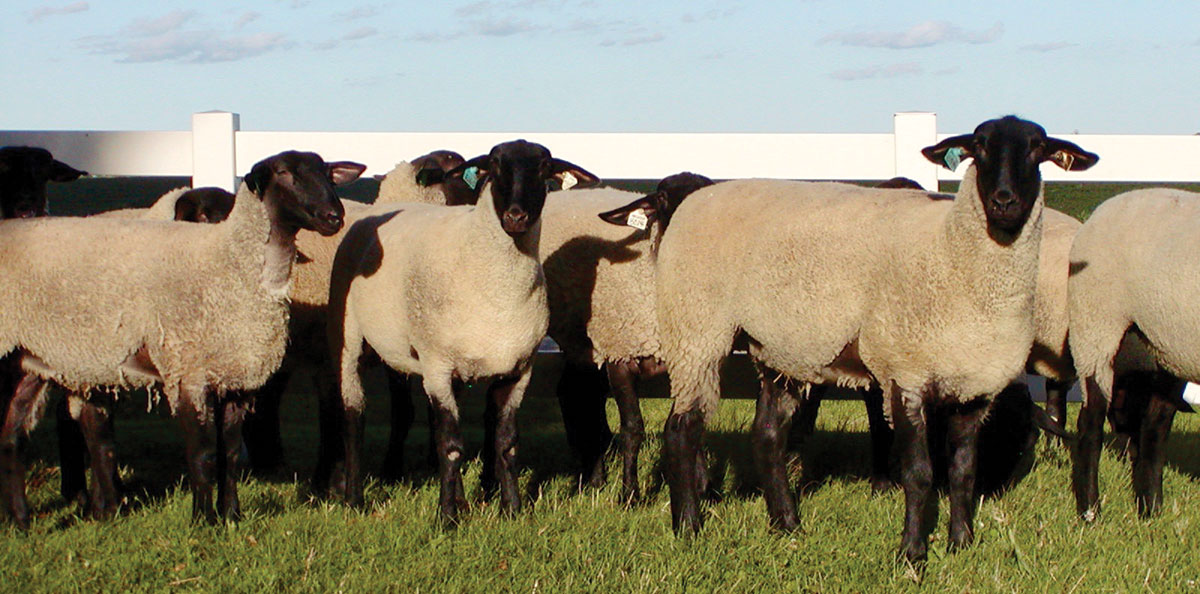
For 22 years, David and Cherri Middleton ran a pretty traditional registered black Angus operation on their Lawrence County farm near Mt. Vernon, Mo.
“We sold bulls, sold cows and went to sales – we did all the regular Angus stuff,” David said. “But in the past couple of years, with declining cow numbers and less demand for seedstock, we transitioned from seedstock to meat.”
Middleton Family Farm now sells directly to the consumer through four farmers’ markets, its website and a membership program that allows customers to purchase 12, 24 or 30 pound packages of beef and/or pork, all raised naturally on the farm.
“We run about 50 cows, and we’ll market all the bulls, a few heifers and young cows, that are culled for production as meat,” David said.
Animals are raised to about 1,000 to 1,100 pounds. The meat is processed at a commercial plant, where it is USDA inspected.
Direct marketing is working well for the Middletons.
“We can make a lot more selling them in one-pound packages than we can by selling a bull,” David said, “although, realizing a return on their investment may take a little longer than traditional markets.”
“You can take your cattle to the sale barn and get a check that day,” Cherri said. “When you’re selling a pound at a time, it can take a long time to get paid for a whole cow.”
The bottom line, however, doesn’t suffer.
“By going directly to the consumer, we can cut out all the middlemen and still maintain a level of profit,” David said.
Direct marketing saves costs on trucking live animals to sales, as well as sale barn fees, and the Middletons also have adopted production methods that keep their overhead down.
“We’ve been doing managed rotational grazing for about 10 years,” David said.
Calves are raised on mom and pasture, staying with their mothers until weaning time. Creep feeding isn’t part of the program, and calves receive only minimal grain rations to finish them out to sale weight.
“A cow has to be capable of raising a calf to acceptable weaning weight – and do it every year,” David said.
“We try to make the cows work for us instead of us working for the cows,” he added.
The Middletons remain with the Angus breed, David said, “the Angus cow is the premier beef cow.”
“It’s a multi-purpose, problem-free breed,” he added. “They’re excellent mothers, produce more than adequate milk, and have no calving problems.”
“And as an added bonus, you have superior carcass animals,” he said.
Calves reach grade at lower weights, so cuts are smaller at harvest, a quality their customers appreciate, David explained. The Angus meat itself is prized for its marbling, moisture and taste.
Acceptance of their beef has been good at the farmers’ markets they attend in Springfield and Fair Grove, Mo., David said, and it is satisfying to have direct contact with the people who use their products.
“You can talk one-on-one with your customers, and get feedback about what quality of meat they want,” David explained.
“People are becoming more and more conscious of where their food is coming from,” David continued. “They want to know how their animal is raised – and what’s in them.”
“What is in Middleton’s All Natural Meats?” David answered, “is just that – meat.”
“It’s 100 percent cow,” he said. “No additives, no filler, no extenders and no gluten.”
Nor did their cows, when on the hoof, receive antibiotics, steroids or hormones.
The Middletons follow a standard vaccination program, and believe the health standard of their closed herd is high. They raise their own replacement heifers through AI and use a cleanup bull, usually an embryo transplant that has an excellent mother, so the potential for contamination from outside animals is low. Unknown animals simply aren’t a part of the farm; the Middletons know the lifetime health and history of every animal they raise.
“We know our animals. We know what they’ve been fed, and because we have control of the genetics, we know their background,” David said. “We know them from conception to consumption.”
Their customers appreciate that, as well as the flavor of the beef they get.
“It’s good to hear them say, ‘This is the best stuff I’ve ever had,’ or older people say, ‘This is how meat used to taste.'”
“We have a lot of repeat customers,” David said. “We see our business grow all the time.”







